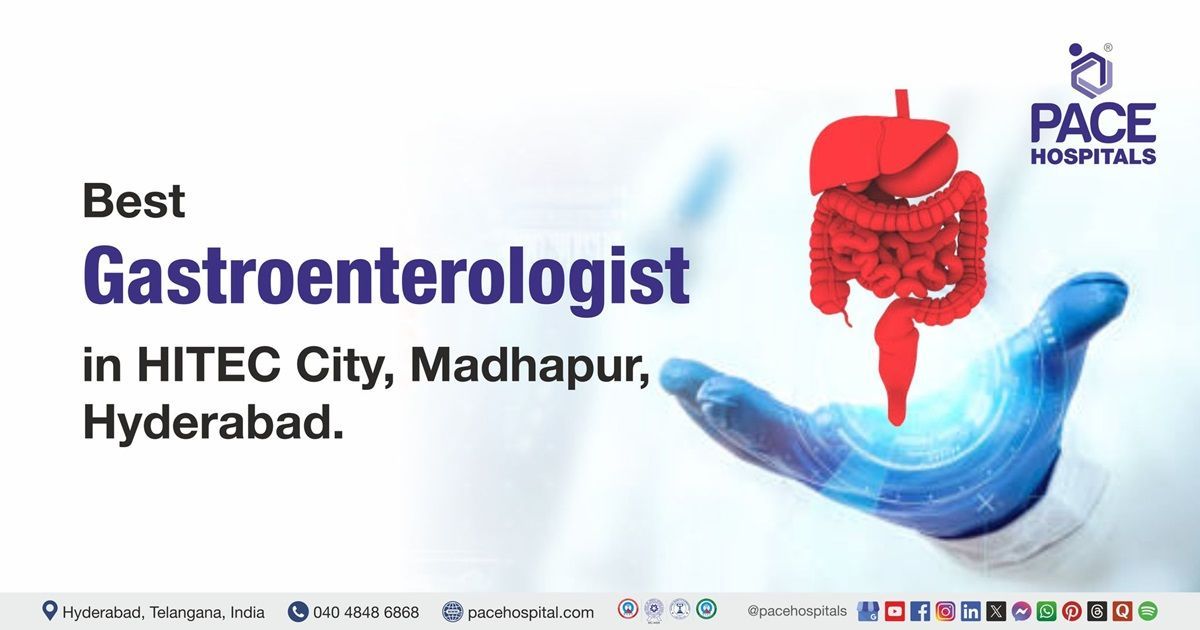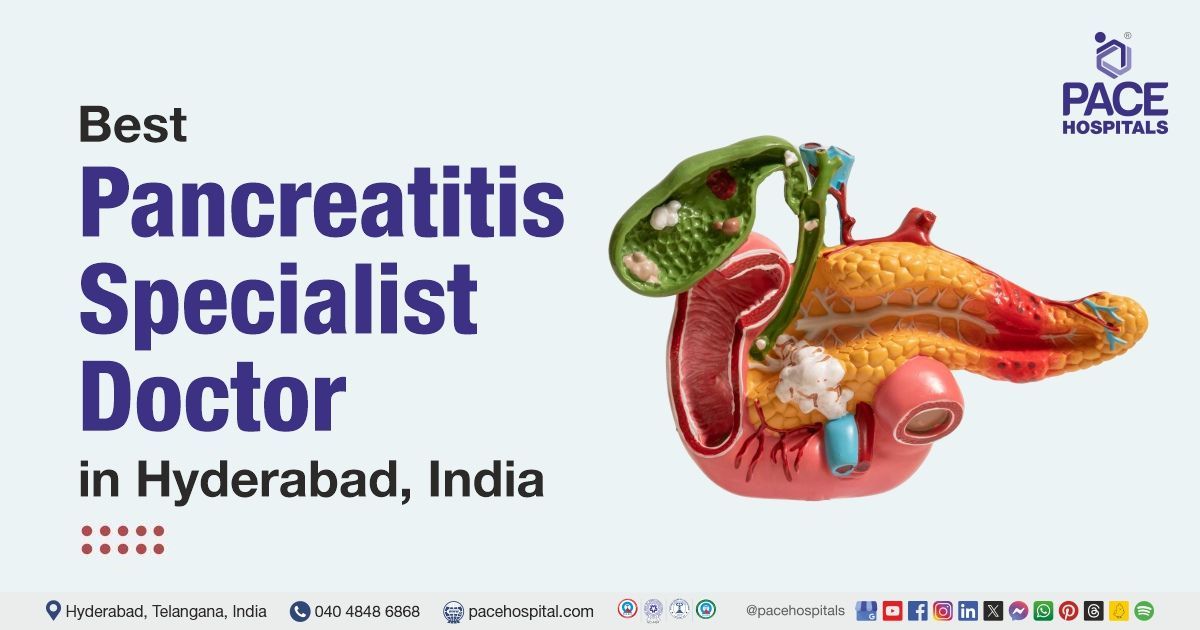Management of Chronic Calcific Pancreatitis with Incomplete Pancreas Divisum: A Case of ERCP Intervention
PACE Hospitals
A young adolescent male presented to PACE Hospitals, Hyderabad, with complaints of epigastric pain radiating to the back for the past three days. The patient had a history of recurrent acute pancreatitis and had previously undergone endoscopic retrograde cholangiopancreatography (ERCP) with pancreatic duct (PD) stenting. He underwent ERCP-guided stent removal, followed by symptomatic treatment.
Chief complaints
The patient, a 17-year-old male, presented to
PACE Hospitals, Hyderabad, with severe epigastric pain persisting for the past three days, radiating to the back, and progressively worsening. He reported mild nausea but no vomiting, fever, or
jaundice. The pain was unresponsive to over-the-counter medications and significantly impacted his daily activities. The patient had a history of recurrent
acute pancreatitis with similar episodes in the past.
Medical history
The patient had a history of recurrent acute pancreatitis, having experienced multiple episodes in the past. To manage these episodes and address pancreatic duct obstruction, endoscopic retrograde cholangiopancreatography (ERCP) with pancreatic duct stenting was performed. The patient denies any known allergies to medications, foods, or other substances. Additionally, there was no significant family history of gastrointestinal or pancreatic disorders.
Physical examination
On examination, the patient exhibited tenderness in the epigastric region without any palpable masses or organomegaly. Vital signs were stable, indicating no immediate systemic instability.
Laboratory investigations
Laboratory investigations revealed mildly elevated serum amylase and lipase levels, consistent with pancreatic inflammation.
Liver function tests (LFTs) and complete blood count (CBC) were both within normal limits, ruling out significant hepatic dysfunction or infection.
Imaging studies
Imaging studies, including Magnetic Resonance Cholangiopancreatography (MRCP), confirmed the presence of chronic calcific pancreatitis and incomplete pancreas divisum. Additionally, calcifications were observed in the pancreatic duct, accompanied by mild ductal dilatation, consistent with chronic inflammatory changes and ductal obstruction.
Diagnosis
The patient was diagnosed with chronic calcific pancreatitis with incomplete pancreas divisum, based on clinical, biochemical, and imaging findings. Chronic inflammation had led to pancreatic duct calcifications, fibrosis, and ductal dilatation. Management focuses on symptom relief, preventing complications, and preserving pancreatic function.
Medical decision making (MDM)
Considering the patient’s history of recurrent pancreatitis, incomplete pancreas divisum, and the need for stent removal, the interventional gastroenterologist, transplant hepatologist, pancreatologist and endosonologist, Dr. Govind Verma, along with Dr. M Sudhir, decided to proceed with ERCP. This approach aimed to remove the stent, evaluate the pancreatic duct, and alleviate any obstruction to improve pancreatic function and reduce inflammation.
Treatment procedure
An Endoscopic Retrograde Cholangiopancreatography (ERCP) with stent removal was performed under appropriate anesthesia. Using a duodenoscope, the pancreatic duct was successfully visualized, and the previously placed stent was removed without complications. A post-procedure evaluation of the duct revealed no residual obstruction or stones, and no additional interventions were necessary during this session.
Postoperative care
The patient was managed with IV antibiotics to prevent infection, non-opioid analgesics for effective pain relief, and proton pump inhibitors (PPIs) to reduce gastric acid secretion and protect the gastrointestinal lining.
Post-procedure monitoring included regular assessments for signs of post-ERCP pancreatitis, such as fever, abdominal pain, or vomiting, along with routine checks of vital signs and abdominal examinations.
Dietary recommendations included maintaining a balanced diet while strictly avoiding high-fat meals to minimize stress on the pancreas and reduce the risk of recurrent episodes.
Postintervention summary
The ERCP procedure was uneventful, and the patient showed significant symptomatic improvement post procedure. The epigastric pain subsided, and the patient tolerated oral intake without issues. The patient was hemodynamically stable throughout the hospitalization period.
Discharge medications
At discharge, the patient was prescribed oral antibiotics for 7 days to prevent post-procedural infections. Proton pump inhibitors (PPIs) were continued to reduce gastric acidity and protect the gastrointestinal mucosa. Nonopioid analgesics were recommended for pain management as needed. Additionally, nutritional supplements were prescribed to support overall recovery and enhance pancreatic function.
Follow-up instructions
The patient was advised to follow up with Dr. Govind Verma in one month for reassessment and to plan long-term management. Additionally, the patient was instructed to seek immediate medical attention if experiencing persistent or worsening abdominal pain, fever or chills, vomiting, or an inability to tolerate oral intake, as these may indicate complications requiring urgent care.
Innovative Approaches in Managing Chronic Calcific Pancreatitis with Incomplete Pancreas Divisum
Chronic calcific pancreatitis with incomplete pancreas divisum presents a complex challenge that demands a holistic and multi-faceted approach to treatment. In this particular case, the recurrent acute episodes of pancreatitis were primarily attributed to the incomplete drainage of pancreatic secretions, a consequence of the congenital anomaly of pancreas divisum. This condition hampers the proper fusion of the pancreatic ducts, which in turn causes stasis and obstruction, leading to inflammation and calcification within the pancreas.
The Endoscopic Retrograde Cholangiopancreatography (ERCP) procedure was crucial in addressing the pancreatic ductal obstruction. By successfully removing the previously placed stent, the procedure alleviated the impediments to pancreatic secretion flow, significantly reducing the risk of subsequent complications.
Management of this patient went beyond just addressing acute episodes and included multidisciplinary care that focused on long-term prevention and symptom relief. Pain management was prioritized using non-opioid analgesics to avoid the risks associated with opioid use, while nutritional support through tailored dietary recommendations and supplements played an integral role in maintaining pancreatic function and aiding recovery.
Share on
Request an appointment
Fill in the appointment form or call us instantly to book a confirmed appointment with our super specialist at 04048486868
Appointment request - health articles
Recent Articles













